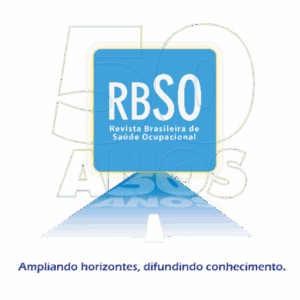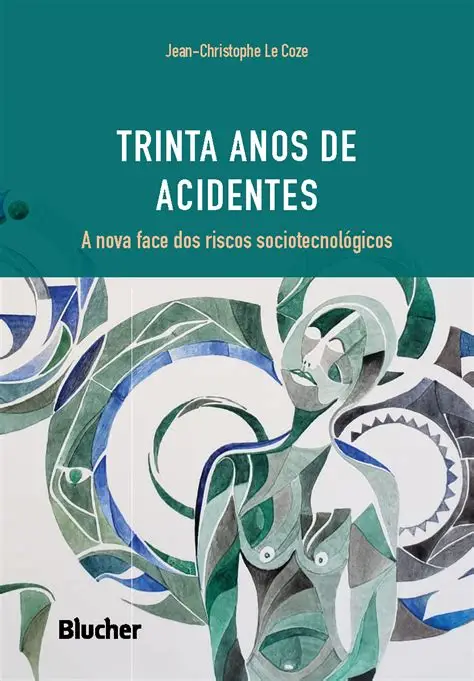Raoni Rocha Simões, Professor, Federal University of Ouro Preto (UFOP), Ouro Preto, MG, Brazil.
 Jean-Christophe Le Coze, author of the book Thirty Years of Accidents: The New Face of Sociotechnical Risks, translated into Portuguese and released in Brazil in 2023, revisits theories and tools in safety science, proposing new perspectives on industrial risks in light of interdisciplinary contributions. This universe is explored in the interview Jean-Christophe Le Coze and the study of socio technological risks, published in the Brazilian Journal of Occupational Health/Revista Brasileira de Saúde Ocupacional (RBSO) (vol. 50, 2025).
Jean-Christophe Le Coze, author of the book Thirty Years of Accidents: The New Face of Sociotechnical Risks, translated into Portuguese and released in Brazil in 2023, revisits theories and tools in safety science, proposing new perspectives on industrial risks in light of interdisciplinary contributions. This universe is explored in the interview Jean-Christophe Le Coze and the study of socio technological risks, published in the Brazilian Journal of Occupational Health/Revista Brasileira de Saúde Ocupacional (RBSO) (vol. 50, 2025).
The work offers an original reflection on the evolution of industrial safety analyses and models, revisiting three decades of industrial accidents, from Three Mile Island to the Deepwater Horizon disaster, to propose new theoretical and methodological paths capable of addressing the challenges faced by highly technological and interdependent societies.
Over the past decades, companies operating in high-risk sectors such as energy, oil, and chemicals have undergone profound technological, economic, and political transformations. Privatizations, market liberalization, digital innovations, and new management models have changed not only how production occurs but, above all, how safety is managed. In this context, Le Coze argues that understanding accidents cannot be a task limited to engineers or legal experts; it requires dialogue among the social sciences, ergonomics, philosophy, psychology, engineering, and public policy.
The author proposes an integrated reading of classical analytical models – such as Charles Perrow’s Normal Accidents Theory and James Reason’s Swiss Cheese Model – highlighting their limitations in the face of contemporary sociotechnical complexity. Instead of linear and retrospective approaches, which often lead to individual blame, Le Coze suggests new models capable of encompassing variability, adaptation, and the multiple levels of interaction between technology, organization, and regulation.
More than an academic analysis, the book engages with managers, regulators, workers, and society at large. By revisiting tragedies that have marked generations, the author draws attention to warning signs that frequently go unnoticed and argues that safety must be built dynamically, grounded in cooperation and continuous critical reflection.
Thirty Years of Accidents is, therefore, an invitation for society to think of safety not merely as the absence of failures, but as a collective and ongoing practice. In an era of global crises, from climate change to emerging energy technologies, the book offers valuable tools for understanding emerging risks and rethinking how we prevent disasters in an increasingly complex world.
To read the article, access
HURTADO, S.L.B. et al. Jean-Christophe Le Coze and the study of socio technological risk. Rev. Bras. Saúde Ocup. [online]. 2025, vol. 50, e7 [viewed 6 November 2025]. https://doi.org/10.1590/2317-6369/08424en2025v50e7. Available from: https://www.scielo.br/j/rbso/a/zwNCWpwcCx6nRYF3RVnHgyk/
References
LE COZE, J.C. 30 anos de acidentes: a nova face dos riscos sociotecnológicos. São Paulo: ASAS-Blucher, 2023 [viewed 6 November 2025]. https://doi.org/10.5151/9788521221197. Available from: https://openaccess.blucher.com.br/article-list/9788521221197-626/
External links
Revista Brasileira de Saúde Ocupacional – RBSO
Revista Brasileira de Saúde Ocupacional (Fundacentro)
Revista Brasileira de Saúde Ocupacional – X
Como citar este post [ISO 690/2010]:



















Recent Comments